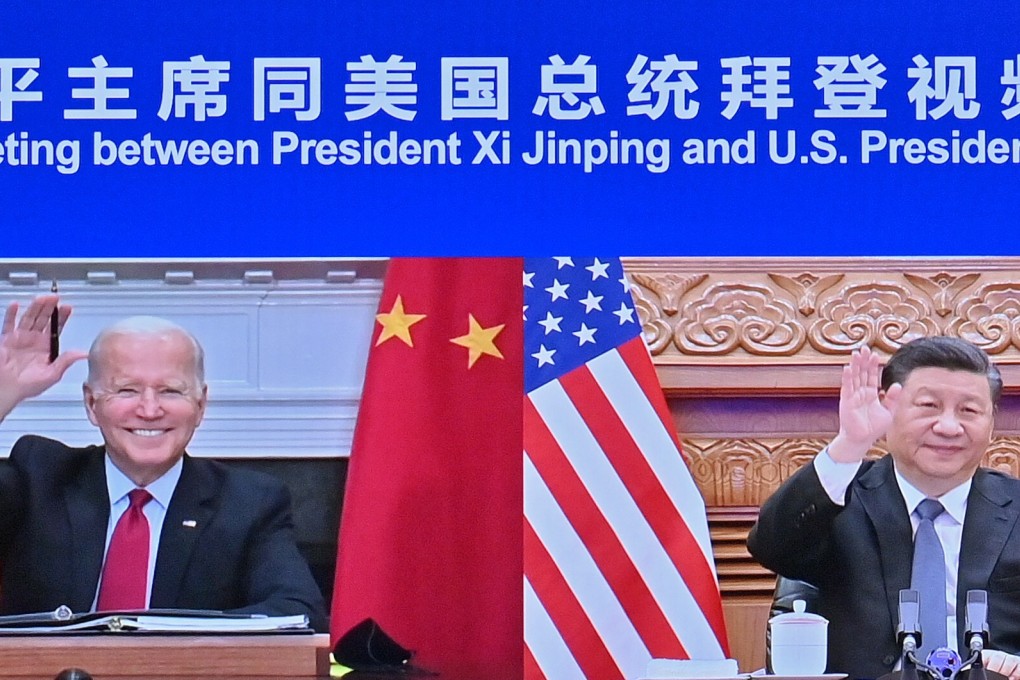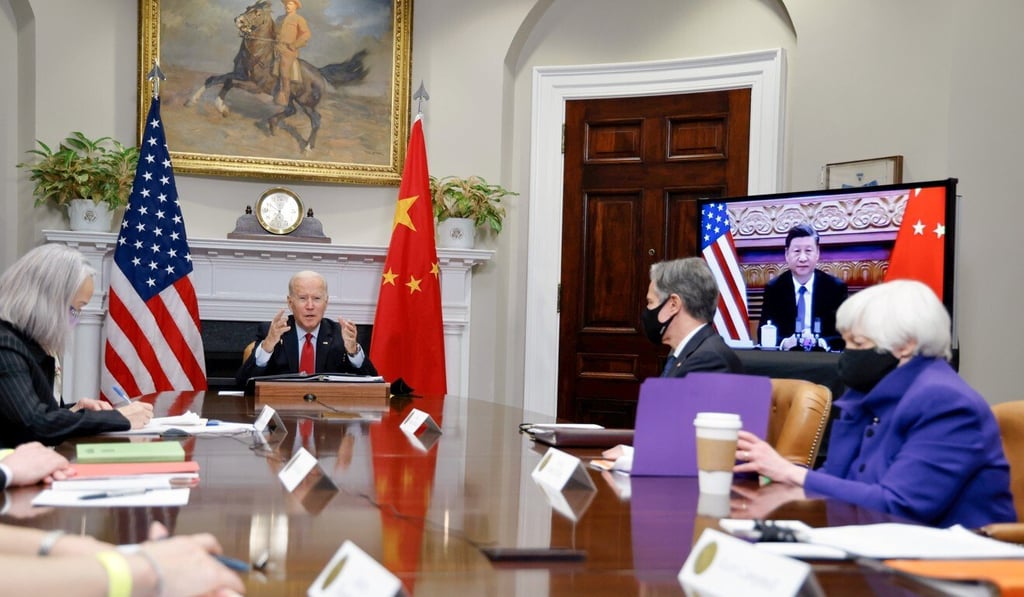Advertisement
Xi-Biden summit: who were the key players at the talks?
- Chinese and US leaders have held their first virtual meeting, aiming to manage conflict and improve communication
- With a wide range of issues on the table, here’s a look at the two sides’ delegations
Reading Time:5 minutes
Why you can trust SCMP
3

Chinese President Xi Jinping and his US counterpart Joe Biden met for their first virtual summit on Tuesday, aiming to manage conflict between the two nations and improve communication. A wide range of issues were on the table – including Taiwan – and the delegations from the two sides suggested the scope would be broad. Here’s a look at who took part in the talks.
United States delegation

Antony Blinken, secretary of state
Blinken is a long-time foreign policy adviser to Biden. He was Biden’s top aide on the Senate Foreign Relations Committee and national security adviser from 2009 to 2013, when Biden was vice-president.
Blinken publicly clashed with China’s top diplomat, Politburo member Yang Jiechi, during face-to-face talks in Alaska in March, saying Washington and its allies were united in pushing back against Beijing’s assertiveness and taking aim at Beijing’s policies on Xinjiang, Taiwan and Hong Kong.
Yang hit back, saying China would not accept unwarranted accusations from the US. “Let me say here that in front of the Chinese side, the United States does not have the qualification to say that it wants to speak to China from a position of strength,” Yang said at the time.
Advertisement
Last month, Blinken urged United Nations member states to include Taiwan in more UN institutions, sparking a protest from Beijing.
Janet Yellen, secretary of the Treasury
Treasury Secretary Yellen spoke with Chinese Vice-Premier Liu He in late October, their second phone call during the Biden presidency.
Advertisement
Advertisement
Select Voice
Select Speed
1.00x